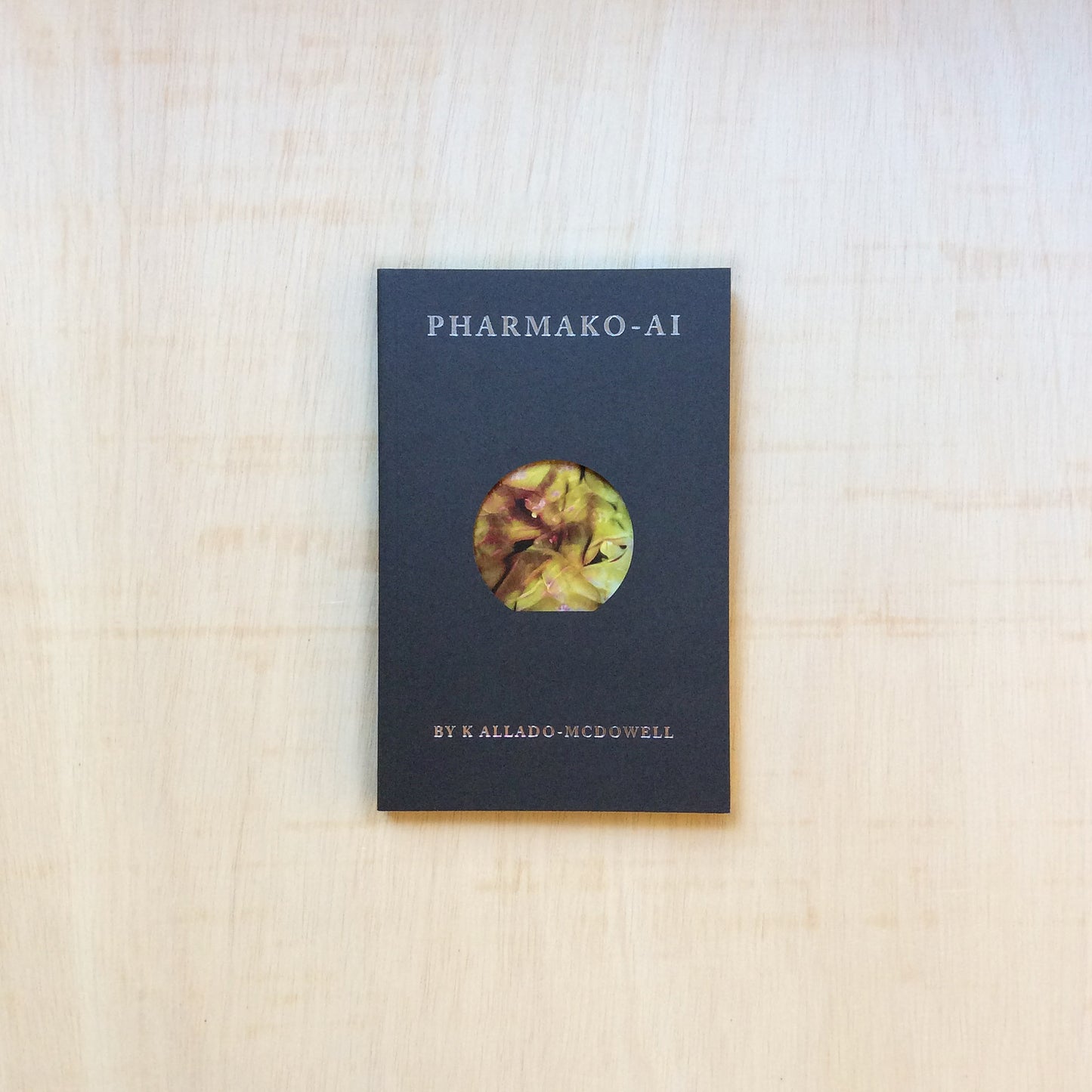Pharmako-AI
Pharmako-AI
K Allado-McDowell
2020
9781838003906Softcover
20 x 13 x 1.5
152 pages
Regular price
19,00 €
Regular price
Sale price
19,00 €
Unit price
per
Tax included.
Couldn't load pickup availability
Introduced by Irenosen Okojie
Cover by Refik Anadol
During the first summer of the coronavirus pandemic, a diary entry by K Allado-McDowell initiates an experimental conversation with the AI language model GPT-3. Over the course of a fortnight, the exchange rapidly unfolds into a labyrinthine exploration of memory, language and cosmology.
The first book to be co-created with the emergent AI, Pharmako-AI is a hallucinatory journey into selfhood, ecology and intelligence via cyberpunk, ancestry and biosemiotics. Through a writing process akin to musical improvisation, Allado-McDowell and GPT-3 together offer a fractal poetics of AI and a glimpse into the future of literature.
Pharmako-AI reimagines cybernetics for a world facing multiple crises, with profound implications for how we see ourselves, nature and technology in the 21st century.
Generative Pre-trained Transformer 3 (GPT-3) is an autoregressive language model that uses deep learning to produce human-like text. It is the third-generation language prediction model in the GPT-n series created by OpenAI, a San Francisco-based artificial intelligence research laboratory.[2] GPT-3's full version has a capacity of 175 billion machine learning parameters. GPT-3, which was introduced in May 2020, and is in beta testing as of July 2020,[3] is part of a trend in natural language processing (NLP) systems of pre-trained language representations.[1] Before the release of GPT-3, the largest language model was Microsoft's Turing NLG, introduced in February 2020, with a capacity of 17 billion parameters or less than 10 percent compared to GPT-3.[4]
The quality of the text generated by GPT-3 is so high that it is difficult to distinguish from that written by a human, which has both benefits and risks.[4] Thirty-one OpenAI researchers and engineers presented the original May 28, 2020 paper introducing GPT-3. In their paper, they warned of GPT-3's potential dangers and called for research to mitigate risk.[1]:34 David Chalmers, an Australian philosopher, described GPT-3 as "one of the most interesting and important AI systems ever produced."[5]

